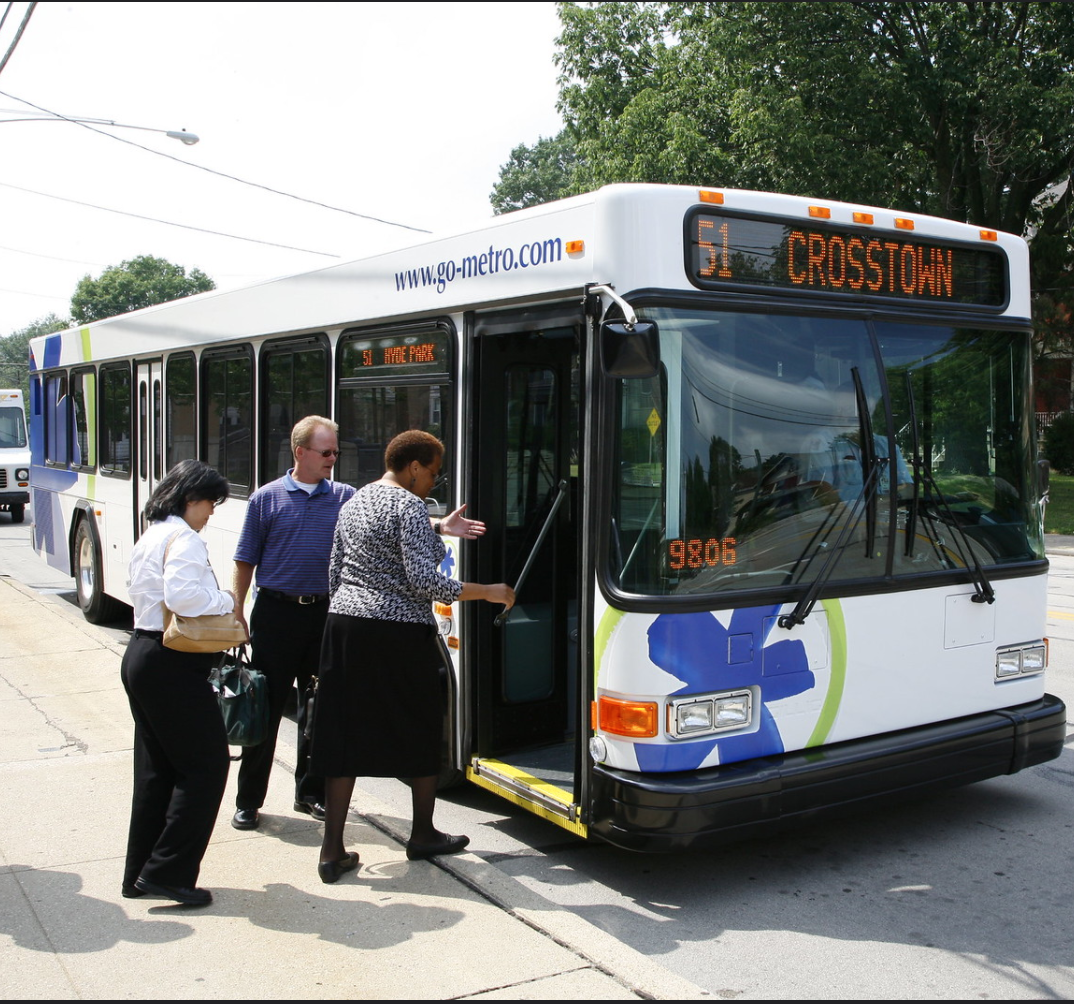Cincinnati voters said on Thursday that they want more public transit — even in a transportation landscape that's been rapidly transformed by COVID-19 and the growing concern over continued ridership shortfalls going forward.
Though the Queen City is better known for questionable choices like putting chili and cheddar cheese on top of spaghetti, the city's voters narrowly approved two new tax levies that will provide an estimated $130 million a year for the city's bus network and the roads on which it runs.
The vote was 65,943 "yes" and 65,318 opposed, with thousands of absentee ballots to be counted. Supporters are declaring victory.
"By saying yes to expanded funding for our transportation system, Hamilton County and the Cincinnati region are poised for growth and improved access to jobs, education, health care and all that our region has to offer," said Jill Meyer, president & CEO of the Cincinnati USA Regional Chamber. "These investments are more important than ever as we restart our economy and get people to work.”
Most notably, the vote was actually a re-affirmation of the city's commitment to public transportation in the wake of COVID-19. In the fall, voters approved a ballot measure to rollback 0.3 percent of the city's earning tax for transit, but it wouldn't have gone forward unless they also approved a sales tax increase for transit on the spring ballot. That spring ballot was delayed for over a month due to the pandemic — but still passed once ballot boxes were allowed to re-open yesterday.
The new money promises to revolutionize mobility options in a city that has been slow to grow its mass transit network — and the fact that it's happening the shadow of a pandemic is a testament to the importance of good public transportation even in the worst of times. About 75 percent of the new revenue will go to the local transit authority, SORTA — roughly doubling the local revenue available to the agency and increasing its entire budget by at least 50 percent.
"Like many cities across the country, Cincinnati has tried (and failed) multiple times over the last half-century to pass county sales tax issues in support of public transit," said a spokesperson for Source Cincinnati. "This is a generational investment."
And the decision should be a boon to pedestrians, too. The remaining 25 percent of the funds will actually go towards fixing the roads underneath the buses, and the agency has confirmed to local media that those fixes will include "sidewalk or crosswalk improvements for Metro passengers walking to and from their bus stops." Because Cincinnati's bus network is pretty comprehensive — unlike the city's beleaguered 3.6-mile streetcar – those roads cover roughly 75 percent of Hamilton County, so the bill could be a game changer for walkers all over town. (The streetcar is not administered by SORTA, so it will not benefit from the new tax levies.)
It's refreshing news in a sea of national stories doubting the viability of public transportation in a COVID-19 world, ignoring the crucial public service buses and trains provide. That public service needs better funding for sanitization and increased socially-distanced service now more than ever — and that's exactly what Cincinnatians recognized by approving the measure.






